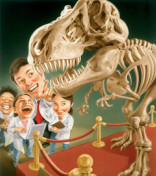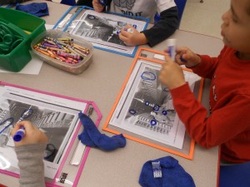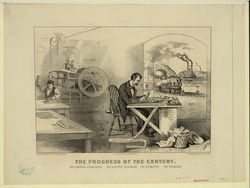Online Articles and Lessons

photo credit: Thomas Reis
Powerful Learning:
Studies Show Deep Understanding Derives from Collaborative Methods
Cooperative learning and inquiry-based teaching yield big dividends in the classroom. And now we have the research to prove it.
By Brigid Barron, Linda Darling-Hammond
Today's students will enter a job market that values skills and abilities far different from the traditional workplace talents that so ably served their parents and grandparents. They must be able to crisply collect, synthesize, and analyze information, then conduct targeted research and work with others to employ that newfound knowledge. In essence, students must learn how to learn, while responding to endlessly changing technologies and social, economic, and global conditions.
Read More: http://www.edutopia.org/inquiry-project-learning-research
Studies Show Deep Understanding Derives from Collaborative Methods
Cooperative learning and inquiry-based teaching yield big dividends in the classroom. And now we have the research to prove it.
By Brigid Barron, Linda Darling-Hammond
Today's students will enter a job market that values skills and abilities far different from the traditional workplace talents that so ably served their parents and grandparents. They must be able to crisply collect, synthesize, and analyze information, then conduct targeted research and work with others to employ that newfound knowledge. In essence, students must learn how to learn, while responding to endlessly changing technologies and social, economic, and global conditions.
Read More: http://www.edutopia.org/inquiry-project-learning-research
Kindergarten Historians:
Primary Sources in an Early Elementary Classroom
 Identifying evidence in historic photographs
Identifying evidence in historic photographs
March 12, 2013 by Cheryl Lederle This post is co-authored by the Library of Congress Teacher in Residence, Earnestine Sweeting and a Library of Congress 2011 Summer Teacher Institute participant, Teresa St. Angelo.
If you’ve ever wondered how early elementary students develop historical thinking skills, check out this lesson with a group of kindergarten historians. The Class of 2025 demonstrated their educational readiness while engaged in analyzing primary sources from the Library of Congress.
Read More: http://blogs.loc.gov/teachers/2013/03/kindergarten-historians-primary-sources-in-an-early-elementary-classroom/
If you’ve ever wondered how early elementary students develop historical thinking skills, check out this lesson with a group of kindergarten historians. The Class of 2025 demonstrated their educational readiness while engaged in analyzing primary sources from the Library of Congress.
Read More: http://blogs.loc.gov/teachers/2013/03/kindergarten-historians-primary-sources-in-an-early-elementary-classroom/
Turning S.T.E.M. into S.T.E.A.M.
An Interdisciplinary WebQuest by Stevie Kline & Joyce Mason
 Library of Congress
Library of Congress
Joichi Ito said,“Most creative work is a process of people passing ideas and inspirations from the past into the future and adding their own creativity along the way.”Many educators and business professionals feel America’s strength has always been her citizens' innovative and creative ability, and are becoming increasingly concerned that creativity is not being fostered in America’s public schools today. In this WebQuest you will explore the works of three very different innovators, Leonardo da Vinci, Albert Einstein, and Frank Lloyd Wright and attempt to discover the traits they had in common and how nature, beauty, and art influenced them.
Read More: http://myconnect.waynesburg.edu/c/document_library/get_file?uuid=78ab0c3f-1cd4-4119-9fe7-44fe7ea44c65&groupId=193395
Read More: http://myconnect.waynesburg.edu/c/document_library/get_file?uuid=78ab0c3f-1cd4-4119-9fe7-44fe7ea44c65&groupId=193395
